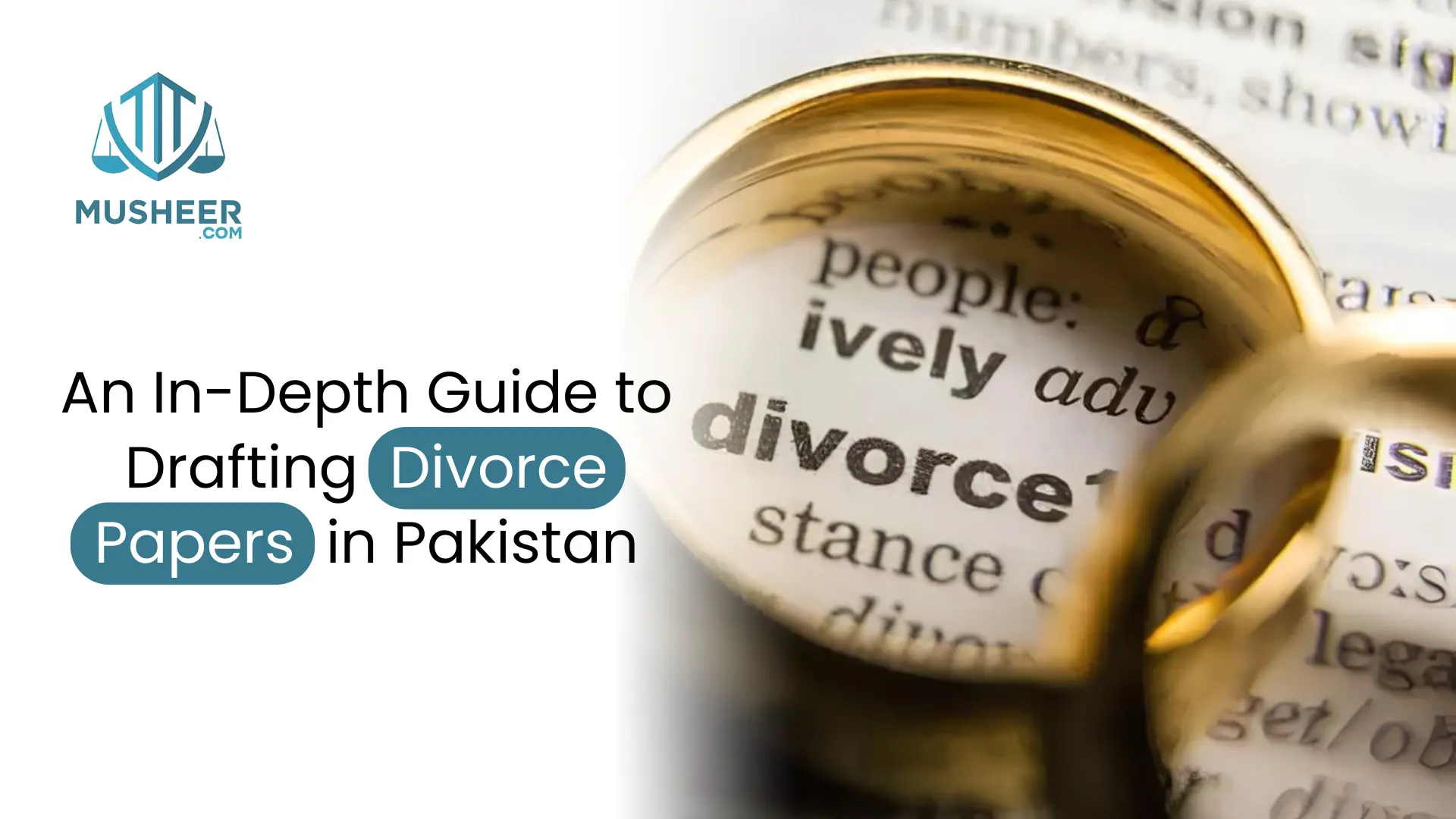In Islam, Nikkah gives sanctity. A Muslim Marriage is a contract that becomes binding on both parties and can be dissolved like any other contract if the parties decide to do so.
Dissolution of Marriage can be done by way of Talaq or Khula. It is automatically dissolved on the death of one of the spouses. Besides, both wife and husband have legal and religious rights to end a marriage. In Islam, a husband has the unilateral right of talaq, which can never be taken away but can be restricted through the nikahnama. However, the same freedom of talaq can be delegated to the wife under Clause 18 of the nikahnama, thereby, the wife can adopt the same procedure as the husband, and a talaq shall be pronounced. This mode of dissolution of marriage is known as Talaq-i-Tafweez.
Khula:
Generally, it is not a common practice in the social construct of Pakistani to provide the right of talaq to the wife. Therefore, the other option left to the wife for marriage dissolution is by khula. Khula is a divorce taken by the wife through court. To apply for Khula, the wife would need to file a petition for Khula in the Family Court under the Family Courts Act, 1964 because she feels she can no longer live with her husband “within limits prescribed by Allah” and such a statement on oath made in her suit would be sufficient to establish her case for Khula.
Khula is the equal right of talaq available at a woman's option to break the marriage tie. Like the right of talaq, the right to khula is unconditional. However, the wife must return the dower she received from the husband in case she seeks khula.
However, after passing the Punjab Family Courts (Amendment) Act 2015, women can now retain up to 50% of their dower in the case of khula, which they were previously bound to return if they applied for khula.
Maulana Abul-ala-Maudoodi, a renowned Islamic scholar, in his book "Haqooq-uz-Zaujain" says (page 61), "Muslim Law just as it has given the husband the right to divorce the wife with whom he cannot pull on has also given the wife the right to get a khula from her husband whom she hates and with whom she cannot live…… Just as it gives the right of divorce to the husband, it gives the wife the right of khula so that in case of need, there may be liberty for each to get a release from the bondage of marriage. Neither party is forced to continue in a marriage where there is hatred in the heart, objects of marriage are being frustrated, and married life has become a torture."
Maulvi Muhammad Ali, another great religious scholar and the author of a commentary on the Qur'an and numerous holy books has in his "Religion of Islam" expressed a similar opinion. He says (page 676)
“ The right of the wife to claim a divorce is not only recognized by the Holy Qur'an and Hadith but also in Fiqh. The technical term for the wife's right to divorce by returning her dower is khul”
In Balqis Fatima v Najm-ul-Ikram Qureshi, the Lahore High Court revisited the established law on khula. The primary contention before the Court was whether the wife was entitled to dissolution of marriage on the restoration of what she has received from the husband in consideration of the wedding?' The Court answered the question in the affirmative by giving a fresh interpretation to verse 2:229 of the Holy Quran and held:
“This verse [2:229] admittedly permits the termination of a marriage by the wife passing consideration to the husband. The question for consideration is whether this termination can be affected only by agreement between the husband and wife or whether the wife can claim such termination even if the husband was not agreeable.”
The Court concluded that the reference to the judge under the verse could only mean that he is entitled to pass an order dissolving the marriage even though the husband is not ready to divorce.
In this landmark case, the judges interpreted verse 2:229 and considered khula as Talaq (divorce) rather than fasakh (dissolution of marriage). Thus, in the Court's view in khula, the wife has to free herself in return for some consideration (i.e., dower). A Court can dissolve the same if it is convinced that the spouses would not be able to live within the bounds set by God and that the husband's consent for the validity of khula, in such cases, is not necessary.
In the case, Khurshid Bibi vs. Muhammad Amin, the court observed while quoting Hedaya that a husband can claim more than the dower itself in lieu of khula. However, it is abominable on the husband's part, but if he insists, it is permissible.
The rationale behind the return of such dower and marital gifts is that since khula is at the instance of the woman, she must provide some compensation to the husband.
Dissolution of Marriage (fasakh):
Section 2 of The Dissolution of Muslim Marriage Act 1939 provides some grounds where the woman is entitled to get her nikkah dissolved on proving any of those grounds. However, no such order of dissolution can be passed if the wife cannot verify any of these grounds.
The significant difference between khula and fasakh of nikkah is:
-
The wife does not have to return any portion of her dower to the husband.
-
Dissolution of marriage can only be granted on the grounds provided in the act, while for khula, no such basis is to be proved.
The rationale behind the non-return of the dower in the case of fasakh of nikkah is that on all these grounds, the husband is the cause of marital discord. Therefore, he should not be given any compensation for such dissolution of marriage.
Grounds for Dissolution of Marriage:
A woman married under Muslim law shall be entitled to obtain a decree for the dissolution of her marriage on any one or more of the following grounds, namely:-
-
The whereabouts of the husband have not been known for one year
-
That the husband has neglected or has failed to provide for her maintenance for two years
-
That the husband has taken an additional wife in contravention of the provisions of the Muslim Family Laws Ordinance, 1961
-
That the husband has been sentenced to imprisonment for three years or upwards
-
That the husband has failed to perform, without reasonable cause, his marital obligations for one year
-
That the husband was impotent at the time of the marriage and continues to be so
-
That the husband has been insane for two years or is suffering from leprosy or a virulent venereal disease
-
That she, having been given in marriage by her father or another guardian before she attained the age of sixteen years, repudiated the marriage before reaching the age of eighteen years
Provided that the marriage has not been consummated;
-
That the husband treats her with cruelty, that is to say
-
Habitually assaults her or makes her life miserable by cruelty of conduct, even if such conduct does not amount to physical ill-treatment
-
Associates with women of evil repute or lead an infamous life
-
Attempts to force her to lead an immoral life
-
Disposes of her property or prevents her from exercising her legal rights over it
-
Obstructs her in the observance of her religious profession or practice
-
If he has more wives than one, does not treat her equitably following the injunctions of the Quran
-
On any other ground which is recognized as valid for the dissolution of marriage under Muslim law
Provided that-
-
No decree shall be passed on the ground until the sentence has become final.
-
A decree passed on the ground shall not take effect for six months from the date of such rule. If the husband appears in person or through an authorized agent within that period and satisfies the Court that he is prepared to perform his marital duties, the Court shall set aside the said decree.
-
Before passing a decree on the ground, the Court shall, on application by the husband, make an order requiring the husband to satisfy the Court within one year from the date of such demand that he has ceased to be impotent. If the husband meets the Court within such period, no decree shall be passed on the said ground.
Conclusion:
Legal procedures must be followed appropriately, whether the marriage has been dissolved through talaq, khula, or otherwise. Failure to do so can raise doubts about the effectiveness of the divorce and lead to serious legal problems, such as a case of bigamy and Zina against a woman who later remarries or difficulties settling other issues related to the divorce.









